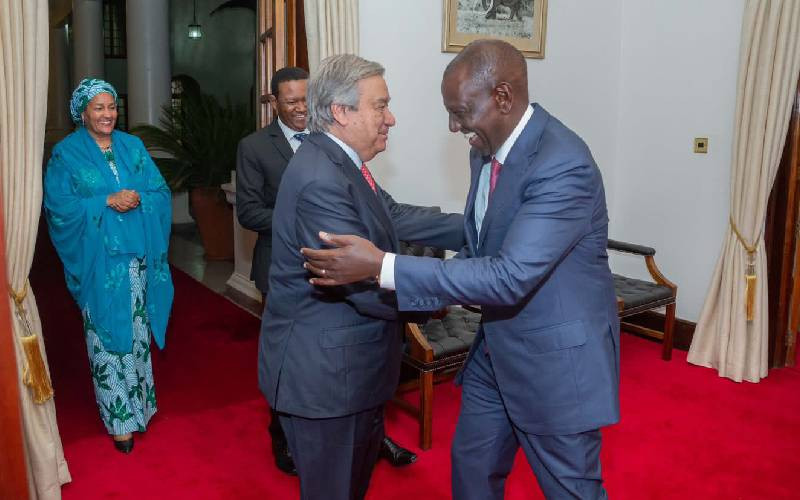×
The Standard e-Paper
Home To Bold Columnists

More than 800,000 people could flee the war-torn Sudan as fighting escalates in the country, UN Secretary General Antonio Guterres has said.
The UN boss said Sudanese are facing a humanitarian catastrophe following destruction of hospitals and looting of humanitarian warehouses, subjecting millions to food insecurity.